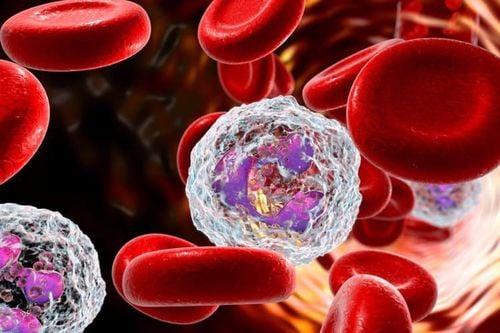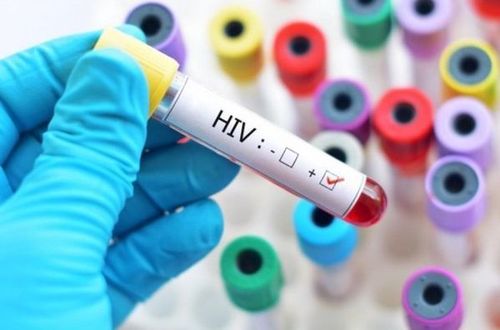The immune system plays an important role in protecting human health, preventing disease and infection. When the body’s immune system encounters abnormalities, this leads to a number of diseases related to the immune system and resistance.
1. What is the body’s immune system?
The term “Immune System” in English means a system formed from a network of special cells, tissues, organs and proteins. These elements work together to protect humans against bacteria and microorganisms that exist in daily life. The immune system attacks pathogens in the human body through a series of immune reactions.
The body’s immune system is complex and is located throughout the body, including:
- Tonsilons in the throat
- Digestive system
- Bone marrow
- Skin
- Lymph nodes
- Spleen
- Thin mucous membranes inside the nose, throat and genitals

The role of the immune system is to protect the body from infection.
2. Roles
2.1. Protecting the body from infection
The immune system is the body’s natural defense mechanism. Invaders that cause disease include bacteria, viruses, parasites, and even fungi that exist everywhere, such as in the home, workplace, and natural environment.
The immune response process is as follows:
- Step 1: A healthy immune system will create a barrier to prevent pathogens or foreign antigens from entering the body.
- Step 2: If harmful agents overcome the barrier, the immune system continues to produce white blood cells, as well as other chemicals and proteins to attack and destroy foreign elements that are potentially harmful.
The immune system is capable of recognizing millions of different antigens and will work to eliminate most of the invading pathogens. If functioning properly, this complex defense system prevents many health problems, from simple colds to dangerous cancers.

White blood cells are very important cells that help fight pathogens.
2.2. Creating antibodies to prevent recurrence of old diseases
People are born with a certain immune system and resistance, but this immune system will undergo improvement over time.
When children often get colds, the immune system will produce a “bank” of antibodies after the first exposure to that disease, thereby developing the ability to fight them in the future.
The process of introducing weakened pathogens into the body creates conditions for the immune system to win, create antibodies and prevent recurrence of the disease, which is also the mechanism of action of vaccines.
However, as people age, the immune system becomes less effective. Immune deficiency makes the body weaker and more susceptible to disease.
3. The Importance of the Immune System
When the body’s immune system is weakened, bacteria, viruses, and toxins can invade and cause a number of diseases.
Immune disorders also cause many other diseases such as:
- Autoimmune diseases such as juvenile diabetes, rheumatoid arthritis, and anemia.
- Immunodeficiencies include HIV/AIDS (acquired immunodeficiency syndrome) and severe combined immunodeficiency SCID.

Immunodeficiency diseases are caused by immune disorders.
4. Maintain a healthy immune system
Healthy living habits can help improve the function of the immune system, specifically:
4.1 Exercise
Regular exercise not only helps the body feel refreshed but also strengthens the immune system and resistance. Activities such as brisk walking can stimulate white blood cells to work better, help reduce stress and improve sleep, thereby improving immunity.
4.2 Eat healthy
A balanced diet plays an important role in keeping the immune system and resistance working well. Vegetables and fruits rich in vitamin C and antioxidants as well as garlic and some mushrooms can strengthen resistance.

Garlic and nutritious vegetables and fruits help improve health
4.3 Get enough sleep
Adequate sleep helps protect cells from damage and deterioration. Lack of sleep reduces resistance and makes you more susceptible to disease. Having enough and deep sleep is considered a medicine for the body.
4.4 Control stress
The body will secrete hormones such as cortisol and adrenaline when stressed, which will weaken the immune system. Long-term stress increases the risk of disease, including cardiovascular disease and high blood pressure. Meditation and yoga exercises help reduce stress and improve health, improving the quality of life.
4.5 Avoid alcohol and stimulant abuse
Although drinking alcohol in a certain amount can bring health benefits, alcohol and stimulant abuse will weaken the immune system, inhibit white blood cell function and reduce resistance.
4.6 Live happily
A happy life full of love often goes hand in hand with having a healthy body. Research shows that levels of an immune system protein, immunoglobulin A (IgA), tend to be higher in adults who have regular, healthy sex. Good relationships help reduce stress and improve sleep, thereby naturally protecting the body from disease.

Meditation helps control stress and improves the immune system, making the body healthier and more alert.
4.7 Avoid smoking
Tobacco use is one of the causes of increased risk of diseases such as pneumonia, flu, rheumatoid arthritis, etc.
4.8 Maintain a reasonable weight
One factor that causes impaired immune system function is obesity. Obesity changes the number of white blood cells and cell-mediated immune responses. Therefore, maintaining a balanced body is also a way to improve the immune system.
4.9 Get vaccinated
Vaccination is a way to support the immune system against pathogens. To protect health, minimize symptoms and dangerous complications caused by diseases, it is necessary to get vaccinated fully and on schedule.
The immune system carries out reactions to protect the body against pathogens. Although disorders related to the immune system are often difficult to prevent, a healthy lifestyle and the support of a doctor can help build a stronger immune system.





